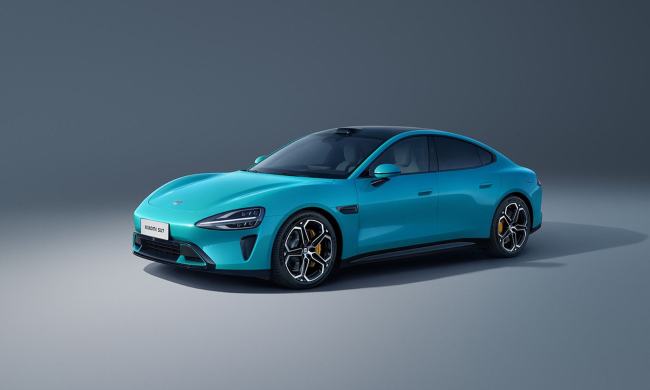
Audi is preparing to release the E-Tron, its first series-produced electric car, in the United States. The company announced the model’s full specifications — including its driving range — and confirmed that reservation holders will start receiving their car in May 2019.
Engineers developed the E-Tron as an electric car from the get-go. There is not a gasoline-powered engine anywhere in sight. Digital Trends drove it, and we walked away impressed by its normal-ness — it’s a good car that happens to be electric. Power comes from a pair of electric motors that zap the four wheels with 360 horsepower and 413 pound-feet of torque in standard driving conditions. Those figures go up to 402 and 489, respectively, when a temporary overboost function kicks in. The motors draw electricity from a 95-kWh lithium-ion battery pack which uses about 88 percent of its capacity to deliver 204 miles of range, according to the Environmental Protection Agency (EPA).
Audi could have unlocked more range, but it decided to play it safe. Its research shows E-Tron owners will charge at home about 85 percent of the time, so engineers developed the lithium-ion battery pack with maximum longevity — not maximum range — in mind. The company wasn’t interested in winning bragging rights in the numbers war, because it predicts an overwhelming majority of E-Tron owners will leave their garage with a full charge, and drive an average of 30 miles per day. Demanding less from the pack also ensures the powertrain delivers repeatable performance.
The German firm’s avant-garde approach to electrification doesn’t end there. An Audi representative pointed out to Digital Trends that there’s no sense in quoting how long it takes to charge the battery from zero to 80 percent because the odds of a motorist completely draining a battery are low. This is a lesson learned from the world of smartphones: Users don’t wait until their device turns itself off to find a plug. Instead, the company highlights real-world statistics like 54 miles of range in 10 minutes, and 163 miles of range in 30 minutes when using 150-kilowatt public chargers.
Above all, Audi wants to make going electric as straightforward as possible. Motorists who don’t have a home charger can get one through a partnership between Audi and Amazon. The retail giant helps them find the right charger, and sends a professional to install it in a manner that’s both safe and timely. In the car, an EV-specific variant of Audi’s dual-screen MMI Touch Response infotainment system shows drivers where they can go before they need to find a plug. The navigation software points out the location of charging stations, and it tells motorists how much range they will have left when they reach their destination. To sweeten the deal, every E-Tron buyer receives 1,000 kWh of free charging to redeem on the growing Electrify America network of charging station. That’s about 2,000 miles of driving.
Audi will begin shipping the E-Tron to American reservation holders in May 2019. That’s also when the model will arrive in showrooms. Pricing starts at $74,800 before a $7,500 federal tax credit enters the equation.



